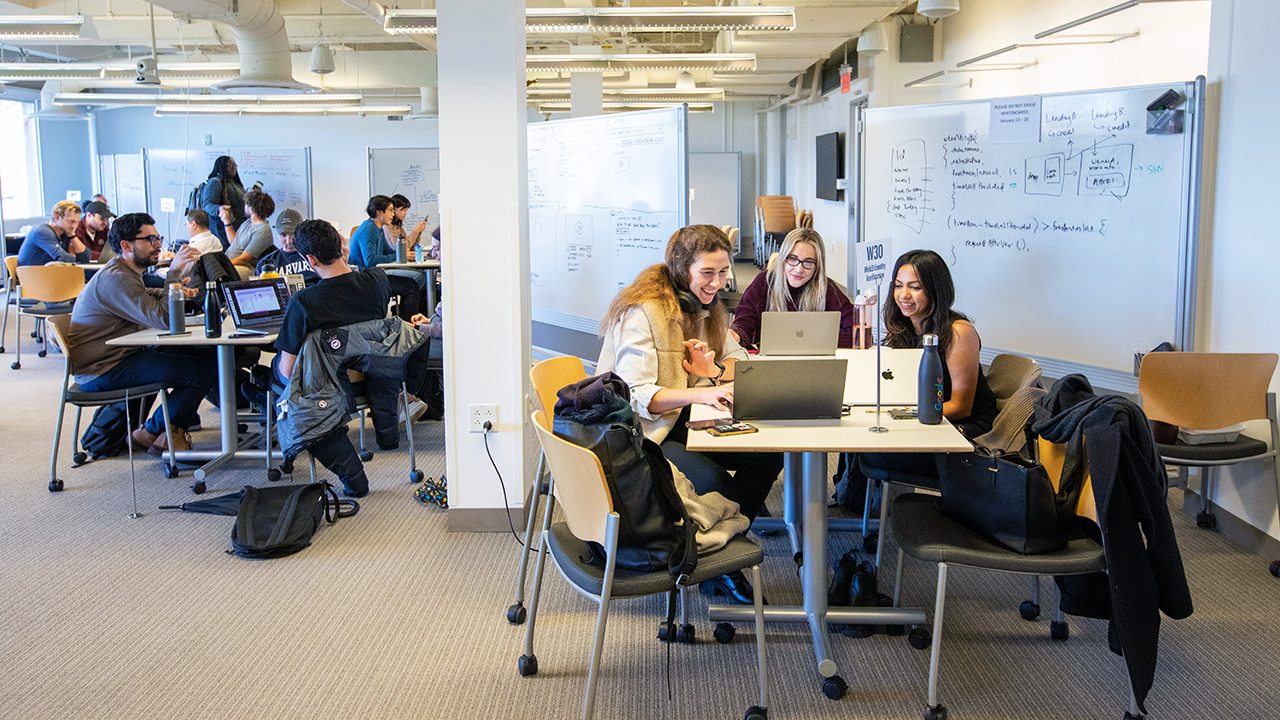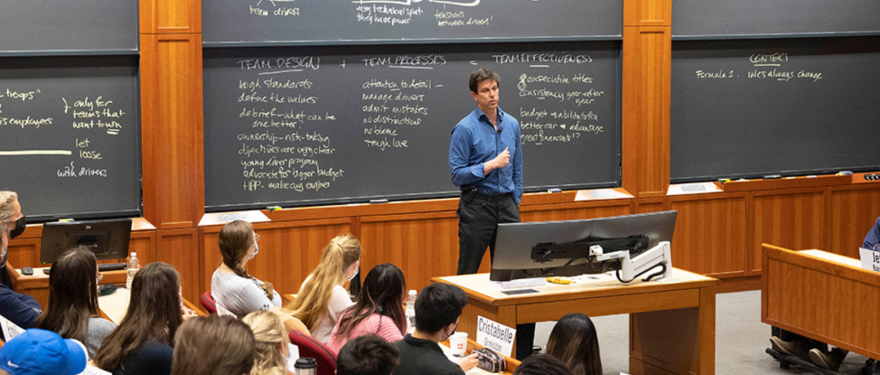It’s tempting to not be in Boston in January, with its frosty temperatures and early sunsets. But if you want to network with and learn from business leaders, celebrity entrepreneurs, and subject area experts, the Harvard Business School campus is the place to be.
Now in their seventh year, Short Intensive Programs, or SIPs, allow MBA students to dive deep into a single subject matter for four days. These no-fee, no credit courses allow students to explore topics outside of their discipline or focus on a potential career choice. For students in their first year (Required Curriculum, or RC), it’s one of their only chances to be in a class outside of their sectionmates, and for both RCs and ECs (second year, Elective Curriculum) to learn together in the same classroom.
Offerings this year include an in-depth look at Formula One with Professor Anita Elberse and Toto Wolff, principal of the Mercedes F1 team; experts across industry and academia discussing climate change in the business context; HBS’s own former Dean, Nitin Nohria, exploring the reality of the CEO role; the evolving qualities required for being a digital leader; and two options—a bootcamp and a toolkit—for students interested in startups.
The format is ideal for bringing in guest speakers–last year Kim Kardashian stopped in for a surprise visit to discuss her SKIMS line in Moving Beyond DTC. Co-taught by Professors Ayelet Israeli and Len Schlesinger and executive fellow Matt Higgins, the class is now in its fifth year of exploring the direct-to-consumer market. Schlesinger considers it a perfect module for their subject and a unique opportunity for all MBA students.
“We have all the flexibility in the world to design something that is uniquely student centered and driven by evolving faculty interests,” said Schlesinger. “These courses offer great topics with faculty who really care about the space and are willing to experiment with modalities, technologies, approaches, and guests—almost all courses make very heavy use of visitors in a way that goes way beyond those offered in both RC and EC standard courses. Some of this stuff doesn’t exist in the MBA curriculum at all—this is the only place you can get it.”

SIPs also allow faculty to test out classes that could become full curricular offerings. Professors Edward Chang and John Beshears aim to do just that in their Inclusion course this year.
“The School is looking for answers to the question of how we can best incorporate this important set of topics around inclusion even more deeply into the MBA curriculum,” said Beshears.
“The SIP is going to be used as a laboratory environment for helping us figure out what types of techniques, approaches, and ways of making connections across different concepts resonate most with students. What will help them develop a deeper self-understanding, empathy for others' lack of inclusion, an understanding of the historical and social forces that lead to a lack of inclusion, and the skills to communicate across differences and be leaders in diverse environments? What types of teaching methodologies—classroom experiences, guest speakers, cases—are going to really help students move along that curve in a meaningful and efficient manner?”
Students who participated in last year’s SIPs gave rave reviews.
Neelam Khan (MBA 2024) considers Moving Beyond DTC a highlight of her time at HBS, and noted its comprehensive approach. “It didn't solely focus on founders and branding; it also offered a thorough exploration of how the funding landscape has evolved. We had the privilege of hearing from experienced investors about their criteria for investing in companies and how they collaborate with founders to achieve success."
Claudia Hill (MBA 2024) says that her four days in Investing in Life Sciences were “inspiring and thought provoking.” “The life sciences SIP was the best learning experience that I have ever had. The speakers, content, moderation, and classmates were all exceptional. I came into this semester wanting to meet more people at HBS with similar interests in the life sciences and I can’t believe how perfect the SIP was for that.”
This article was originally published by the HBS Newsroom.

